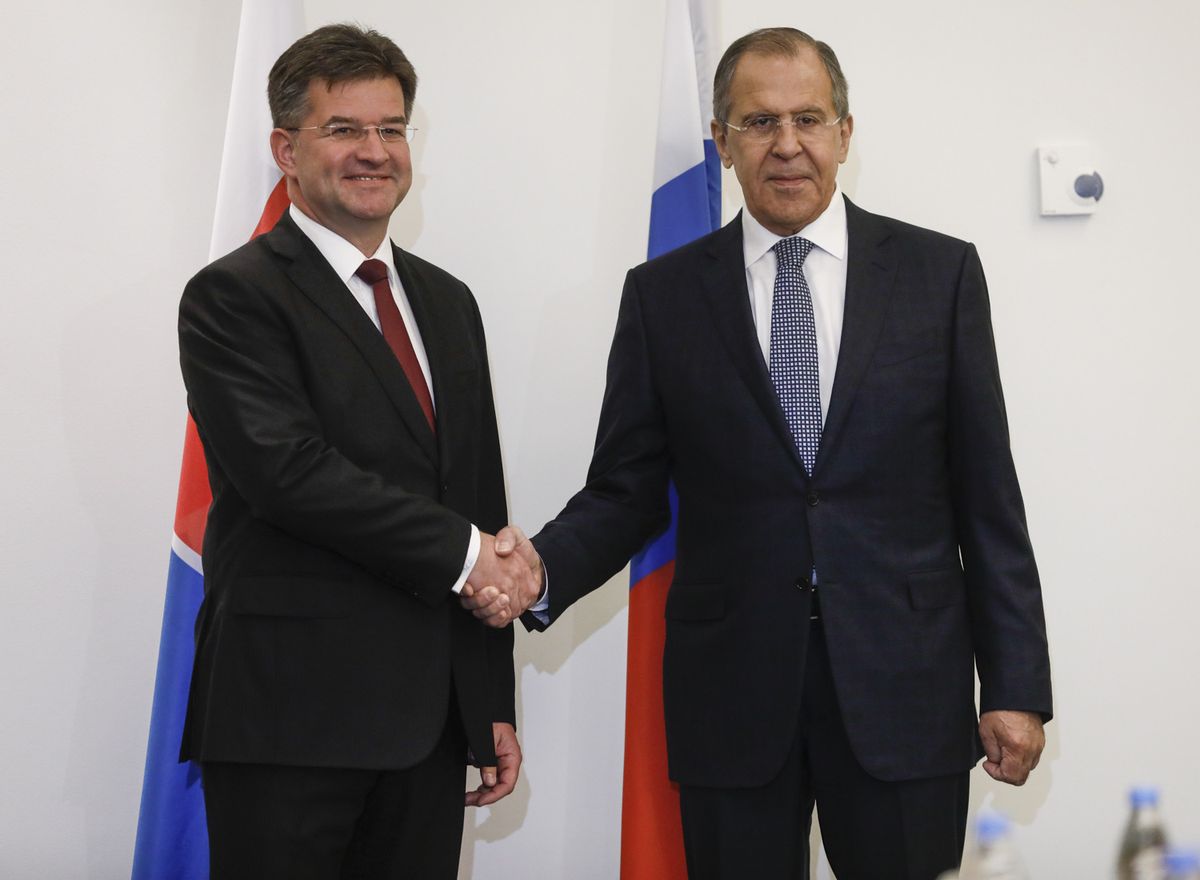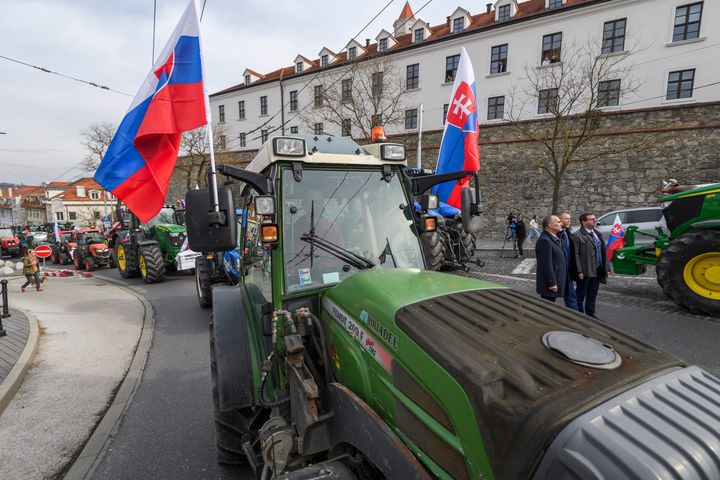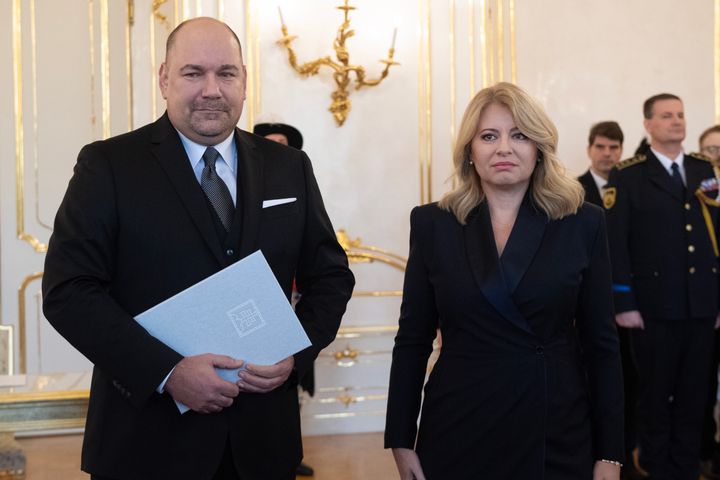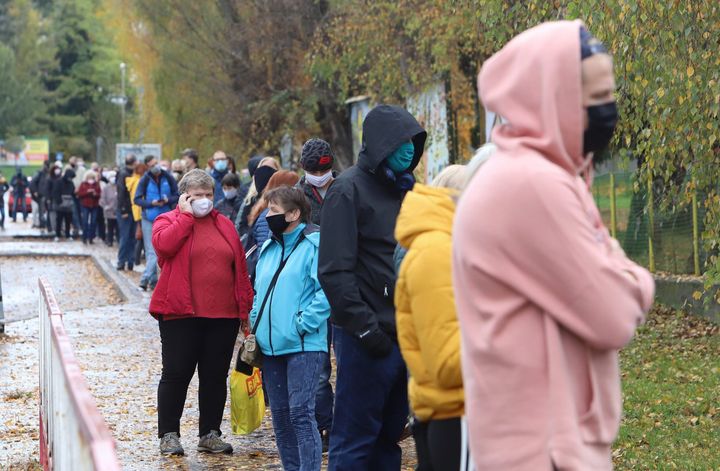Lajcak Meets Lavrov: We're Diplomats, Dialogue Is Our Principal Duty

Kaliningrad, June 6 (TASR) – Russia is viewed by Slovakia as an important economic and trading partner despite the current complex international situation, with Slovakia interested in further economic cooperation, stated Slovak Foreign and European Affairs Minister Miroslav Lajcak at a meeting with his Russian counterpart Sergey Lavrov in Kaliningrad, Russia on Tuesday.
“We’re living in a complicated and unstable security environment. Russia plays an important role when it comes to international security and stability. We consider dialogue with Russia to be very important. We’re diplomats, and engagement in dialogue is our principal duty. I’m pleased that we’ve been successful in continuing not only in political dialogue, but also in the spheres of trade exchanges and economic cooperation, with specific results also due to the work of an intergovernmental commission, including an agreement on a cyclotron centre. We view energy as being among the biggest challenges for the future, with Slovakia interested in a partnership in gas transit with the efficient use of existing infrastructure for transporting both crude oil and gas,” said Lajcak, according to the press department of the Slovak Foreign and European Affairs Ministry.
Lajcak in Russia stressed that Slovakia is interested in pursuing pragmatic and constructive relations with Russia oriented towards specific results. This concerns trade and investments, tourism and cooperation with Russia’s regions. The Slovak minister noted that Russia remains one of the most significant trade and investment partners for his country outside the EU.
At the same time Lajcak expressed the hope that the recent trade-exchange slump will be reversed in 2017. The previous year saw a trade-exchange decline of 17.65 percent, mainly due to EU sanctions, drops in oil prices and the devaluation of the Russian ruble, stated the Slovak ministry.
In energy, Lajcak and Lavrov discussed Russia’s plans to supply Europe with oil and gas vis-a-vis prospects of completing the Nord Stream 2 pipeline, with Lajcak stressing that it would be in the interests of all the parties involved to launch talks featuring the EU, Russia and Ukraine in order to achieve a long-term contract concerning the transit of gas after 2019.
In another part of the talks, the two ministers exchanged their views on priorities of the 72nd UN General Assembly, due to be presided over by Lajcak, with a special focus on reform processes, including reform of the UN’s peace-keeping operations, and preparations for the 2018-19 budget. Lajcak stressed that his priority as the General Assembly president will be dialogue, mediation with a special focus on peace and preventive diplomacy, and a balanced approach to all three UN pillars – peace and security, human rights, and development.
Other points of the debate in Kaliningrad concerned Syria, the Middle East and Ukraine. When it came to Ukraine, Lajcak reiterated Slovakia’s consistent stance that only respect for international law can provide a basis for a lasting diplomatic solution to the conflict. The ministers agreed that fulfilling the Minsk Agreements is the only path towards de-escalating the conflict in Donbas, but the recent slowdown of the implementation process, including frequent shooting, violations of the ceasefire, growing numbers of victims and a deterioration in the humanitarian situation create overall unpleasant prospects for the emergence of another frozen conflict in Europe.
The Russian Embassy in Slovakia has provided TASR with some comments concerning the Lavrov-Lajcak meeting drawn up by the Information and Press Department of the Russian Foreign Affairs Ministry.
The Russian ministry stated that despite current problems in Russia-EU relations, Russia and Slovakia have maintained their partnership and dialogue at the top level. Their parliaments and government agencies maintain regular contact. On August 25, 2016, Slovak Prime Minister Robert Fico visited Moscow, where he met Russian President Vladimir Putin at the Kremlin. Fico also attended the May 9, 2015 celebrations of Victory in the Great Patriotic War in Moscow and went on a working visit to Russia on June 1-2, 2015.
On April 4, 2015, Lavrov came on a working visit to Bratislava on the occasion of the 70th anniversary of the city’s liberation by the Red Army. The two ministers also met during Fico’s visit to Moscow on June 1-2, 2015, in Moscow and New York in 2016 and in Munich in February 2017. The foreign ministries of Russia and Slovakia cooperate constructively and hold annual consultations at various levels as per approved plans. In March 2017, Russian First Deputy Foreign Minister Vladimir Titov held consultations with State Secretary of the Slovak Foreign and European Affairs Ministry Lukas Parizek in Moscow.
In 2000, the State Duma of the Russian Parliament and the Slovak Parliament created respective friendship groups. A similar group was set up in the Federation Council, the upper house of Russia’s Parliament, in 2015. On April 4, 2016, the chairs of the friendship groups of the Russian Parliament’s two houses attended the anniversary celebrations of the liberation of Bratislava from Nazi occupation. On June 8, 2016, Bratislava hosted the first meeting of twin cities and partner regions of Russia and Slovakia. The event was attended by a Federation Council delegation led by Vyacheslav Timchenko, head of the Federation Council’s group of friendship with the Slovak Parliament.
“Russia is interested in close economic cooperation with Slovakia, which is based on a pragmatic attitude and mutual benefit. We hope that bilateral efforts in this area will help Russia and Slovakia reverse the major decline that has plagued bilateral trade for the past few years,” stated the Russian Foreign Affairs Ministry.
“Russian-Slovak trade plunged 22 percent in 2016 compared to 2015 to $4.2 billion. Russian exports to Slovakia were estimated at $2.5 billion (down 30.2 percent) and imports from Slovakia at $1.7 billion (down 5.3 percent). However, bilateral trade increased by 44.7 percent in January-March 2017 compared to the first quarter of 2016 and reached $1.3 billion,” noted the Russian ministry.
In addition, according to the Russian Foreign Affairs Ministry, the Intergovernmental Commission on Economic, Scientific and Technical Cooperation is a “key mechanism” for dealing with practical issues of bilateral relations and for promoting promising joint projects. The Commission convened for the 18th session in Moscow on April 27-28, 2017. The parties spoke about the mutually beneficial nature of their relations and their resolve to further promote them, and also outlined the priority areas of their efforts.
Energy, including nuclear energy, is a key area of Russian-Slovak trade and economic cooperation. Russian companies, according to the ministry, are interested in implementing joint projects in Slovakia, including supplying nuclear fuel to the Mochovce and Jaslovske Bohunice nuclear power plants, which have been using Russian nuclear fuel since their launch, ensuring reliability safeguards at Slovak nuclear power stations and also participating in the construction of the third and fourth blocks of the Mochovce plant.
Another major element of bilateral economic ties is Russia’s distribution of energy to Slovakia. Russia supplies 98 percent of Slovakia’s gas needs and 99 percent of its oil. In 2016, Russia supplied 2.99 billion square metres of natural gas to Slovakia and transported 45.67 billion cubic metres of natural gas to other countries via Slovakia. Russian oil exports to Slovakia totalled 5.73 million tonnes in 2016.
Russia and Slovakia are implementing an interdepartmental programme of cultural cooperation for 2013-17. In October 2016, Days of Russian Spiritual Culture were held in Slovakia. The Russian language is becoming a popular subject at Slovak schools. Russian tourists are among the top ten tourists by nation in Slovakia according to the number of trips and overnight stays. The Russian Ministry of Culture and the Slovak Transport and Construction Ministry have signed a programme of joint action in tourism for 2018-21.
“The people and authorities of Slovakia respect the memory of Soviet soldiers who fell while liberating Europe from Nazism and maintain Red Army cemeteries and memorials. There are 12 large military cemeteries, 34 common and 140 individual grave sites in Slovakia where 60,659 Red Army soldiers are buried. We take note of the similarity of our views on the unacceptability of falsifying history, revising the results of the Second World War and offering justifications for Nazi atrocities,” stated the Russian Foreign Affairs Ministry.



